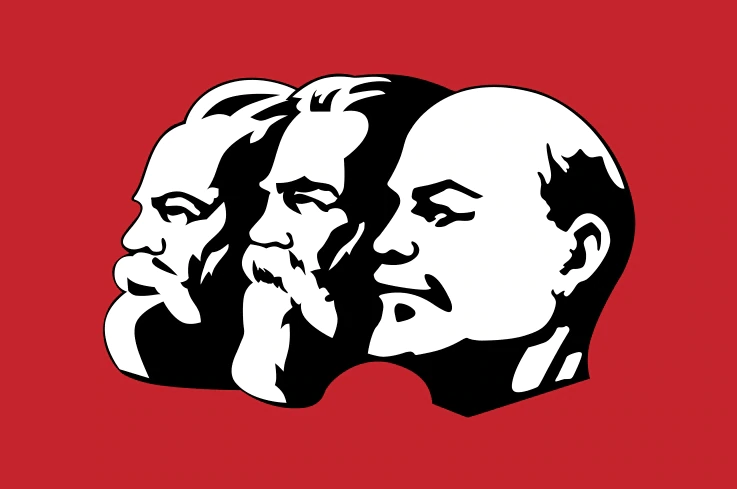More languages
More actions
mNo edit summary Tag: Visual edit |
Jucheguevara (talk | contribs) No edit summary Tag: Visual edit |
||
| Line 23: | Line 23: | ||
== References == | == References == | ||
<references /> | <references /> | ||
[[Category:Outline needs additional content]] | |||
Revision as of 22:05, 14 November 2021

Marxism-Leninism is a scientific world outlook based on dialectical materialism, the materialist conception of history, the Marxist political economy including Leninist conception of imperialism. It is the body of knowledge of the Marxist method applied to the strategy and tactics of revolution since its development by Vladimir Lenin and the Bolsheviks.
Marxism–Leninism was the guiding theory behind national liberation and revolutionary movements in Africa, Asia and Latin America. After the success of the Russian revolution in 1917 and the establishment of the Soviet Union in 1922, many communist parties around the world began to adopt Marxism-Leninism as their political line, and Marxism-Leninism was the main theoretical framework which guided the Korean, Vietnamese, and the Chinese revolutions.
Today, Marxism–Leninism is one of the theoretical foundations of currently in govern communist parties in China, Cuba, Laos and Vietnam, and it is currently the political line of many surviving communist parties today.
Origin of the term
Lenin never used the term "Leninism", nor did he include his ideas in the term "Marxism-Leninism". His ideas developed out of classical Marxist thought, which was seen by the Bolsheviks as Lenin's contribution to Marxism.
